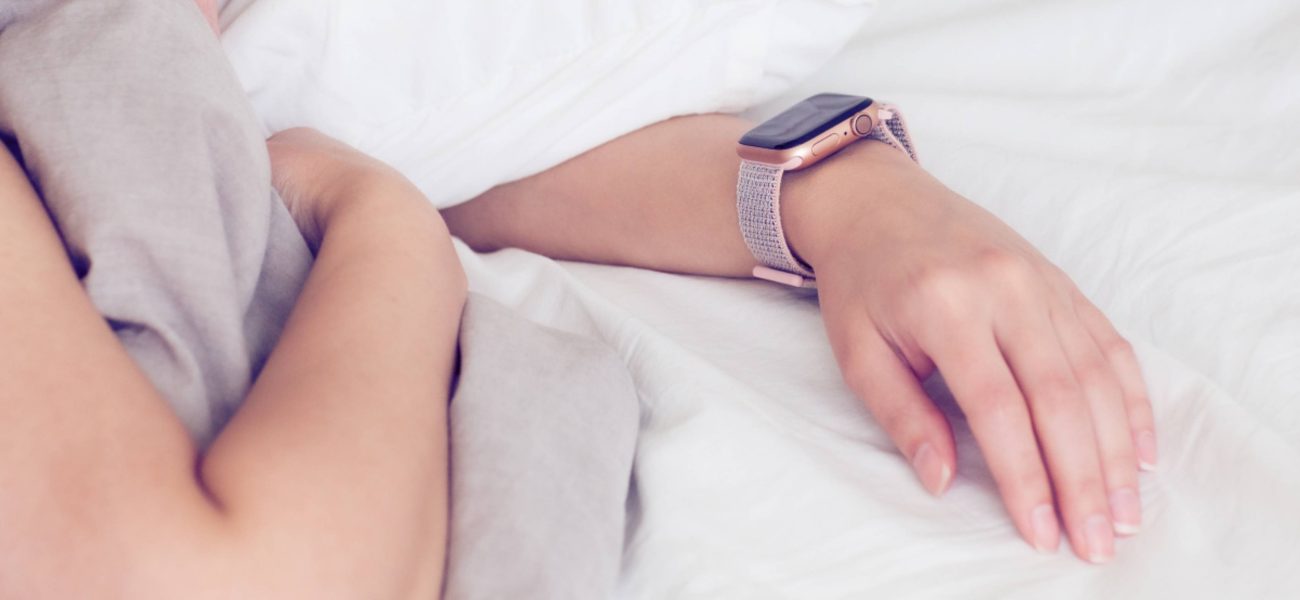In today’s tech-driven world, many people turn to sleep trackers to gain insights into their sleep patterns.
These devices monitor sleep stages and duration to help optimize sleep quality and overall well-being. Sleep trackers can also offer personalized data, allowing users to make adjustments based on their sleep habits.
By tracking your sleep, you may be able to improve restfulness and wake up feeling more refreshed.
While sleep tracking offers benefits, concerns exist about its impact on mental health, particularly the potential to increase anxiety. This article explores how sleep trackers work, their benefits, drawbacks, and limitations, helping you decide if using one is right for you.
What Does Tracking Your Sleep Do?
Tracking your sleep provides insight into the various stages of your sleep cycle, including light sleep, deep sleep, and REM (Rapid Eye Movement) sleep. These stages are essential for restorative sleep and contribute to overall health. By understanding your sleep patterns, you can identify potential problems and make adjustments to improve the quality and duration of your rest.
1. Understanding Sleep Stages
One of the primary functions of a sleep tracker is to monitor the different stages of your sleep. These include:
- Light Sleep: This is the phase when your body is transitioning between wakefulness and deeper sleep. It is crucial for memory consolidation and cognitive restoration.
- Deep Sleep: This phase is when the body physically restores itself, and growth hormones are released to help muscle repair and tissue regeneration. It’s also when the immune system is strengthened.
- REM Sleep: This phase is associated with vivid dreaming and is thought to be critical for emotional regulation and memory consolidation.
A sleep tracker uses sensors to track movements, heart rate, and sometimes even brain activity (depending on the device).
By doing this, it can determine how much time you spend in each of these stages. This information can be valuable for those seeking to optimize their sleep and even prevent snoring by identifying patterns that may contribute to it.
2. Identifying Sleep Patterns
Another key benefit of sleep tracking is that it helps individuals recognize their sleep habits. Whether you wake up multiple times throughout the night, experience trouble falling asleep, or consistently wake up feeling unrefreshed, a tracker can provide a clear picture of what’s happening while you sleep. If you consistently get less sleep than needed, or if your sleep is fragmented, tracking can highlight these patterns.
3. Improving Sleep Hygiene
Sleep trackers also provide users with actionable feedback that can help improve their sleep hygiene. For example, they may offer suggestions on:
- Adjusting bedtimes: Regular sleep patterns can be encouraged by setting consistent bedtimes and wake times.
- Sleep environment: If a tracker identifies periods of wakefulness or restlessness, it may suggest improving your sleep environment (e.g., reducing light, noise, or adjusting the room temperature).
- Lifestyle changes: Sleep trackers may point out how factors such as caffeine intake, exercise, or screen time affect your sleep quality.
By giving you more detailed data, a sleep tracker can empower you to make changes that align with your health goals.
Do Sleep Trackers Cause Anxiety?
While the benefits of sleep trackers seem evident, there are concerns about how this data affects users psychologically. For some, the constant monitoring of sleep data can lead to increased anxiety or an unhealthy obsession with sleep quality.
1. Sleep Performance Pressure
Many people use sleep trackers with the goal of improving their rest, but constantly seeing data that doesn’t meet expectations can lead to frustration.
When sleep quality doesn’t align with what’s ideal, it can cause stress, particularly for those already dealing with sleep issues like insomnia or anxiety. For example, waking up to a low sleep score or insufficient REM sleep can trigger anxiety, creating pressure to perform well, which can ironically worsen sleep quality.
2. Sleep Anxiety
There is a phenomenon called orthosomnia, where individuals become fixated on achieving “perfect” sleep, as indicated by their tracker.
People with orthosomnia may feel pressure to ensure that every night’s sleep is ideal, leading to obsession with the sleep data. This can lead to increased anxiety about sleep, making it even more difficult to rest peacefully.
In essence, by over-focusing on sleep data, individuals can inadvertently worsen their sleep quality. Anxiety over the sleep tracker can lead to sleeplessness, as the focus shifts from the natural process of sleeping to an attempt to achieve a “perfect score.”
3. Sleep Tracker Overuse
Another issue arises when users overly rely on their sleep tracker for validation. Instead of focusing on the natural, restorative benefits of sleep, some individuals may place too much emphasis on the numbers like the hours slept or the percentage of deep sleep.
If the tracker shows a less-than-ideal result, it can make someone feel that they didn’t have a good night’s sleep, even if they feel fine. This over-reliance can heighten anxiety, leading individuals to check their sleep data obsessively.
What Are the Disadvantages of Sleep Trackers?
Although sleep trackers offer several benefits, they come with their own set of disadvantages. It’s important to weigh the pros and cons before fully committing to using a sleep tracker regularly.
1. Accuracy Limitations
One significant disadvantage of sleep trackers is that they are not always 100% accurate. Many trackers rely on movement, heart rate, and sometimes even breathing patterns to estimate sleep stages.
While these metrics can offer valuable insight into your sleep, they aren’t as precise as an actual sleep study conducted in a lab.
For example, some trackers can’t distinguish between being awake and being in light sleep. This can lead to misinterpretations of the data, especially when it comes to categorizing different sleep stages. Misleading information can cause unnecessary stress or lead to unnecessary changes in sleep habits.
2. Obsession with Data
As mentioned earlier, sleep trackers can sometimes create an unhealthy obsession with data. This obsession can lead to sleep anxiety or a constant need for perfection, which defeats the purpose of using the tracker to improve sleep quality. It’s important to remember that sleep is a natural process, and not every night will be ideal.
3. Cost and Inaccuracy of Low-Cost Trackers
While some advanced sleep trackers are relatively accurate, many affordable models may offer less reliable data. Low-cost trackers often provide only basic information and lack the precision needed to truly optimize sleep patterns. Some cheaper models only track movement, which doesn’t provide accurate insights into sleep stages like REM or deep sleep.
4. Dependence on Technology
Sleep trackers require technology whether it’s a smartwatch, ring, or mobile app. This reliance on technology can lead to distractions that hinder the natural sleep process. For instance, if a person checks their phone or smartwatch for data before bed, the screen’s blue light can negatively impact their ability to fall asleep, which directly contradicts the goal of improving sleep quality.
5. Sleep Tracker Fatigue
Some users might experience tracker fatigue, where the process of constantly monitoring sleep patterns becomes tiresome. They might feel overwhelmed by the amount of data presented or discouraged by the results, especially if they don’t meet expectations. This can ultimately lead to abandoning the tracker, which could render any potential benefits null.
Final Thoughts
In conclusion, sleep trackers can help improve sleep by offering insights into patterns and encouraging better sleep habits.
However, they can also lead to anxiety and obsessive behaviors. If you choose to use a tracker, view the data as a guide, not an obsession. Use it to make small adjustments without letting the numbers control your perception of sleep.
Balance technology with mindfulness and consider a holistic approach that includes healthy habits, professional help if needed, and a focus on your mental well-being. It’s essential to prioritize relaxation and stress reduction, which play a crucial role in improving sleep quality.











